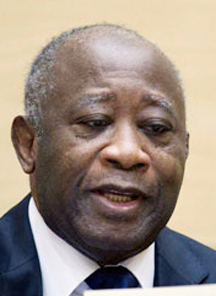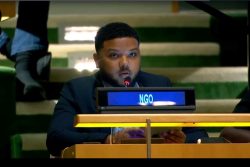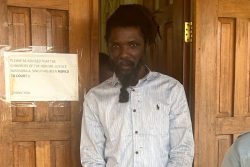AMSTERDAM (Reuters) – Former Ivory Coast president Laurent Gbagbo appeared at the International Criminal Court yesterday to face charges of crimes against humanity, the first former head of state expected to be tried by the court since its inception in 2002.
Gbagbo, 66, was arrested and flown from Ivory Coast to the Netherlands last week, and held since then at a detention centre in The Hague, under the same roof as a “who’s who” of the world’s genocide and war crimes suspects.
The court had charged Gbagbo with individual criminal responsibility on four counts of crimes against humanity: murder, rape and other forms of sexual violence, persecution, and other inhuman acts.

About 3,000 people were killed and more than a million displaced in a four-month civil war in Ivory Coast after Gbagbo refused to cede power to Alassane Ouattara in a 2010 election.
Results certified by the United Nations showed Ouattara won the election by a near 8-point margin, but his rival refused to concede and cracked down on suspected Ouattara supporters.
Dressed in a dark suit, white shirt and dark blue tie, looking rested and in good health, Gbagbo confirmed his identity and date of birth and told the world’s top war crimes court that conditions at the detention centre where he has been held were “fine”.
In an initial court appearance that lasted less than half an hour, Gbagbo spent most of his time describing the conditions under which he had been kept in Ivory Coast and his arrest and transfer to The Hague.
He said that while under house arrest in Ivory Coast, he had been provided with a bed, a mosquito net, a shower, and two meals a day, but could not see the sun and only knew what the weather was outside from the sound of raindrops on the roof.
He complained about his physical ailments, saying, “I am no longer a young person … I am 66 years old, my shoulder hurts, my wrists hurt.” He said that he had been given x-rays and medication on arrival in The Hague.
ICC and Ivory Coast authorities kept Gbagbo’s arrest and transfer to The Hague secret as long as possible in case it was derailed or sparked unrest, issuing an arrest warrant which was sealed until the last minute.








